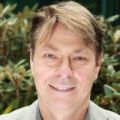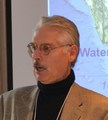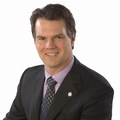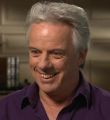BLUE ECOLOGY WORKSHOP: A testimonial to Ted van der Gulik – “The fact that we now have to contend with both severe summer drought and sea rise made Ted’s talk all the more timely and relevant,” wrote Eric Bonham

Ted’s informative presentation on the anticipated impacts on food security from climate change was well received and was a natural follow up to Fin Donnelly’s talk on the challenges of maintaining a healthy Fraser River system. “The most productive agricultural land is situated in the lower Fraser Valley. This is one of the most productive agricultural regions in all of Canada. Half the total provincial farm gate receipts come from the Fraser Valley.” stated Ted van der Gulik.









